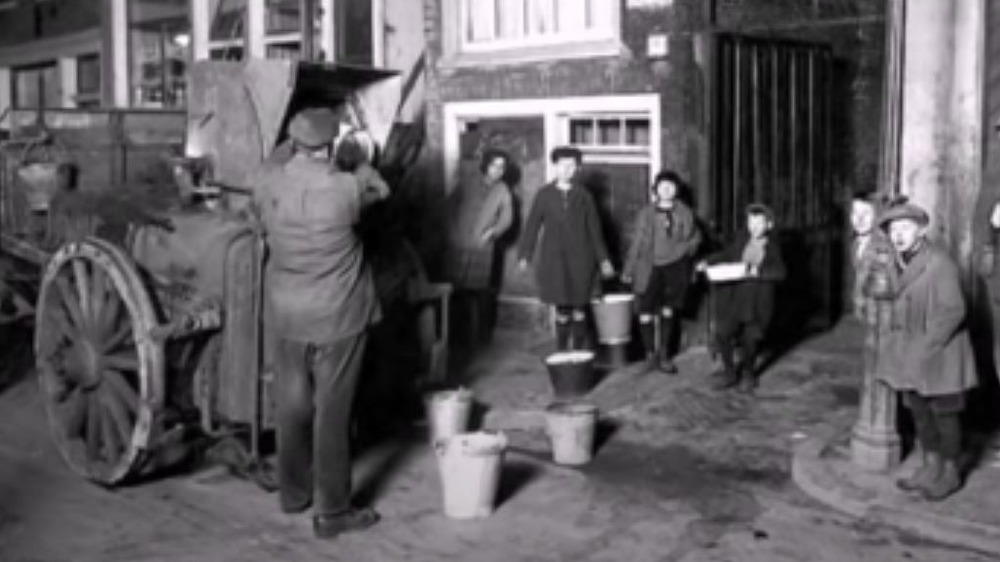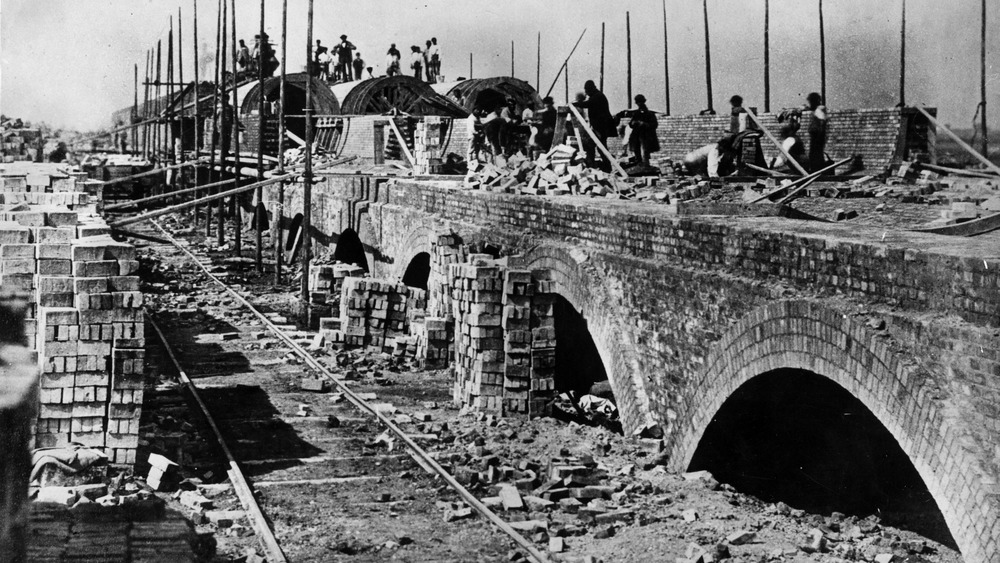Night Soil Men: Victorian England's Cesspit-Cleaning Professionals
Lots of people don't like their jobs. From the service industry's rude customers and crappy tippers, to cubicle dwellers' vain struggles for power and mentally constructed, hours-after-the-fact comebacks, it's practically a societal rite of passage to suffer through less-than-ideal employment at some point in life. But take heart: At least you don't have to shovel literal, actual, tangible s***, right? (Right?)
We can all be grateful, in many ways, that we no longer live in the Victorian era's Dickensian nightmare of mercury in eyeshadow and arsenic baths (per Ranker), 14-hour work days for children that included "scare the birds from fields" and prostitution (per Victorian Children), or rampant tuberculosis, syphilis, typhoid fever, cholera, and more (per Public Health Matters). In comparison, fecal fecundity and a lack of indoor plumbing might seem like a less pressing issue. That is, until you imagine all the heaving, heaping cesspits engorged with defecation, stored, in a sense, underneath your home.
Enter the "night soil man," definitely one of recent history's least desirable, and most hygienically hampered, professions. Ranking up there with professional rat catchers, a night soil man did exactly what you might imagine: shovel waste out of cesspits in the middle of the night. And no, as imagery from 1872 in Dunston, Lincolnshire shows on Twitter, they didn't have hazmat suits to don before getting down and dirty with digging. Or gloves. And they definitely did look like homeless Rob Zombie or that uncle you totally don't want to hug at Thanksgiving.
Prepare to have your cesspit cleaned, Victorian style
The need for night soil men arose in response to the rapid urbanization of the mid-1800s, particularly, although not limited to, cities like London. As Old Bailey Online says, London housed about half a million people in the late 1600s. By 1860, the number was 3.1 million, all packed into an infrastructure that wasn't designed to support so many. Indoor plumbing hadn't yet been invented, but indoor privies had. Meanwhile, the streets filled with 1,000 tons of horse poo every day, as NPR says. This culminated in the Great Stink of 1858, when a summer heatwave carried inland the unbearable stench of the Thames, preferred dumping ground for human, animal, and industrial waste, per the Guardian. In response, Joseph Bazalgette set to engineering his marvel of a sewage system, completed in 1875 (pictured, in progress, above).
Meanwhile, night soil men stepped into the waste-caked gap. When there wasn't a vacuum pump on hand, there was a bucket. They worked in darkness, out of sight and smell of the public, and for their troubles, pocketed a mere 23 shillings (£75) a week, as Find My Past says. Human waste ("night soil") had formed the bedrock of a legitimate, organized fertilizer trade since the 16th century, per the Garden Trust. Victorian London was a different beast, though, and night soil men often stumbled across crimes in progress, corpses in cesspits, and were called to bloody scenes to provide alibis. Thankfully, this thankless job completely vanished by the early 1900s.

